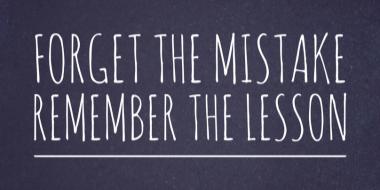Showcasing writing skills on your resume: A complete guide with examples
Strong writing skills can make your resume stand out, especially if you are applying for a role that requires good written communication. However, there’s a right and a wrong way to showcase writing skills on resumes. When conveyed effectively, writing skills can differentiate you from other applicants and help you land an interview. Here’s how to write writing skills on resumes.

Why writing skills are important on a resume
Writing skills on resumes are about much more than grammar and spelling; they demonstrate to employers that you can communicate clearly and organize information effectively. This ability can be valuable for any role that requires you to interact with other team members, clients, or stakeholders, as well as any position that involves documentation, reporting, or correspondence.
For roles in fields like marketing, customer service, and management, writing skills are vital. For example, marketing professionals need to create content that resonates with the target audience while nailing the client’s preferred tone and style. Similarly, customer service reps need to communicate clearly and concisely to resolve issues.
Writing skills are important to so many different roles and industries. Showing that you have the ability to turn a phrase or condense complex information into digestible content can differentiate you from other applicants. However, it’s important to highlight your skills in a way that’s relevant to the position you are applying for.
Key writing skills to showcase
So what skills should you include on your resume to demonstrate your talents as a writer? That depends entirely on the role you are applying for and the preferences of the employer. Here’s a look at some top writing skills to put on resumes to give you a better idea of what you might want to include.
Editing
If you are reviewing written content, employers want to know that you have some great editing skills. As an editor, you’ll be tasked with ensuring the accuracy and clarity of content. This role can be especially important when reviewing deliverables for clients or customer-facing content.
When listing your editing skills, or any talents for that matter, keep it short and to the point. For example, you could say, “Adept at editing complex reports to ensure accuracy and readability.”
Proofreading
Proofreading requires diligence and an eye for catching errors. Strong proofreading skills can help highlight your suitability for a wide range of roles, including editing, writing, and content creation. You may describe this skill as follows: “Exceptional proofreading abilities, ensuring all communications are error-free.”
Technical writing
If you will be expected to convey technical information in an organized and presentable way, make sure to highlight your technical writing skills. Technical writing requires a skill set that is much different from creative writing or editing. You need to use words that convey your unique abilities and strong grasp of complex topics. Here’s an example: “Experienced in creating user manuals and documentation for software apps.”
Creative writing
If you want to step into a marketing role, you’ll need creative writing skills. Be specific about the types of written content you are adept at creating, such as blogs, scripts, social media posts, or white papers. For instance, you could say that you are “Talented in crafting persuasive and engaging copy for diverse audiences.”
Business writing
In business-focused roles, effective writing communicates ideas clearly and professionally. You could use these skills in managerial or customer-service roles as well as sales positions. Tailor your mention of these skills to align with the position you are pursuing. For example, when applying for a management role, you could say that you are “Proficient in drafting business proposals and executive summaries.”
Report writing
If your role requires analytics skills, report writing will showcase your ability to compile and present information logically. You could say that you are:
Skilled in producing detailed reports to support data-driven decisions.
Check out some resume examples for more inspiration about what writing skills to add to your job application documents.
Best resume sections for showcasing writing skills
Learning how to put writing skills on resumes involves identifying the right place to highlight your proficiency as a wordsmith. There are a few different places to list your writing skills:
Professional summary
Your professional summary provides the prospective employer a first impression of who you are and what you bring to the table, so make it count. If you are applying for a role where writing skills are paramount, make sure to highlight them in your summary.
Your professional summary may read as follows:
“Results-oriented communication specialist with 5+ years of experience in crafting client-focused content and reports. Exceptional editing and proofreading abilities with a proven track record of delivering error-free work.”
Experience section
In your experience section, create impactful bullet points that reflect your writing achievements in previous roles. Focus on the results of your writing and how it contributed to your role or organization. Here are a couple of examples:
- Authored weekly client reports that increased customer satisfaction and engagement
- Developed training materials that improved team productivity
If possible, quantify your achievements with hard data. However, it’s okay to list experiences and achievements that aren’t quantifiable. Just make sure you are putting yourself at the center of the statement and linking your writing skills to a positive outcome.
Skills section
Your skills section is the perfect place to list specific writing skills relevant to the industry. Be selective and ensure these skills match the job requirements. Here are a few skills you may want to include:
- Editing
- Proofreading
- Technical writing
- Business communication
- Content strategy
- Creative copywriting
Focus on any skills you possess that are specifically mentioned in the job posting. This tactic can help your resume make it past the applicant tracking systems (ATS) and catch the eye of hiring managers.
Common mistakes
Make sure to avoid vague language, such as “good communicator” or “excellent writing abilities.” Anyone can claim to be good at communicating. These statements about your writing abilities don’t provide the hiring manager with any details about the specific type of content you create or your skills in general.
Avoid redundancy as well. Don’t repeat the same information and skills on both your resume and cover letter. You should ensure that your resume and cover letter include complementary information.
Tailoring your writing skills for specific roles
Every industry values different aspects of writing skills, so tailoring your resume to the job description is crucial. Here’s how you can customize your resume for three popular industries:
Technology
The technology sector values technical writing skills and the ability to break complex information down into digestible content. Mention any of your experiences or skills that could help a technology company connect with customers, investors, or stakeholders.
Healthcare
The healthcare industry values reporting writing and error-free typing. Accuracy is paramount if you are applying for a role where you’ll be transcribing physician orders or typing patient records. Showcasing your ability to type accurately and efficiently can help you stand out from other applicants.
Education
For roles in education, creative writing and instructional material creation are valuable. Talk about instances when you’ve created educational or instructional materials that promote student engagement. If your work yielded any tangible results, such as increasing test scores or boosting engagement, make sure to include that information as well.
expert tip:
Enhancing and demonstrating your writing skills
Just learning how to say “good writing skills” on resumes is not enough. You need to show prospective employers that you are talented at turning a phrase. Here are some tips to effectively demonstrate writing skills on resumes:
Make sure your resume is error-free
You can’t tell someone how great of a writer you are and then turn in job application documents that are filled with grammatical and syntax errors. Thoroughly review your resume and cover letter to ensure they are 100% error-free. Even seemingly small mistakes can undermine your claims about being a good writer and cause the employer to doubt your skills.
Try reading your resume out loud to catch awkward phrasing or inconsistencies. You can also use tools like Grammarly to identify clarity and grammatical errors that may detract from your resume.
Quantify your achievements
When learning how to list writing skills on a resume, it’s important to quantify your achievements with hard data. For instance, if you developed content that boosted engagement, mention those metrics. Numbers can make your achievements more tangible.
Instead of saying that you created a blog series that improved engagement, say something like, “Produced blog content that generated a 25% increase in website traffic within six months.” Sharing quantifiable data shows the depth of your achievements and demonstrates to employers that your writing can make a real impact.
Use action verbs
Action verbs bring your resume to life and put you at the center of the conversation. Words like “authored,” “compiled,” “edited,” and “published” directly convey your contributions and expertise in writing.
Make sure to mix things up, especially if you are talking extensively about your writing skills. Match your action verbs to the type of writing position you are applying for and the kind of skills you possess. For example, a word like “crafted” can be a great option when talking about creative writing skills.
Polish your resume for each role
You should customize your resume for each position you apply for. This way, you can prioritize skills and experiences that align with what the hiring manager is looking for while also demonstrating that you’ve put time and effort into the application process.
No matter how talented you are as a writer, you should consider using a resume template to give your document a polished, professional look. Choose a complementary job letter template to ensure consistency between both documents.
"Showing that you have the ability to turn a phrase or condense complex information into digestible content can differentiate you from other applicants."
Stand out with writing skills on resumes
Now that you know how to say you have good writing skills on a resume, it’s time to start typing. Upgrade your existing resume to highlight your writing abilities, or create a new document from scratch to give yourself the best chance of standing out. If you need a little inspiration, check out resume and cover letter examples to see how you can seamlessly weave writing skills into your job application documents.
Impress potential employers with your resume
Follow step-by-step professional guidance to create a polished resume in minutes.



